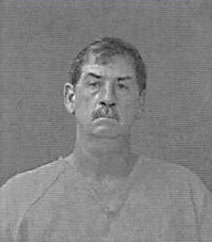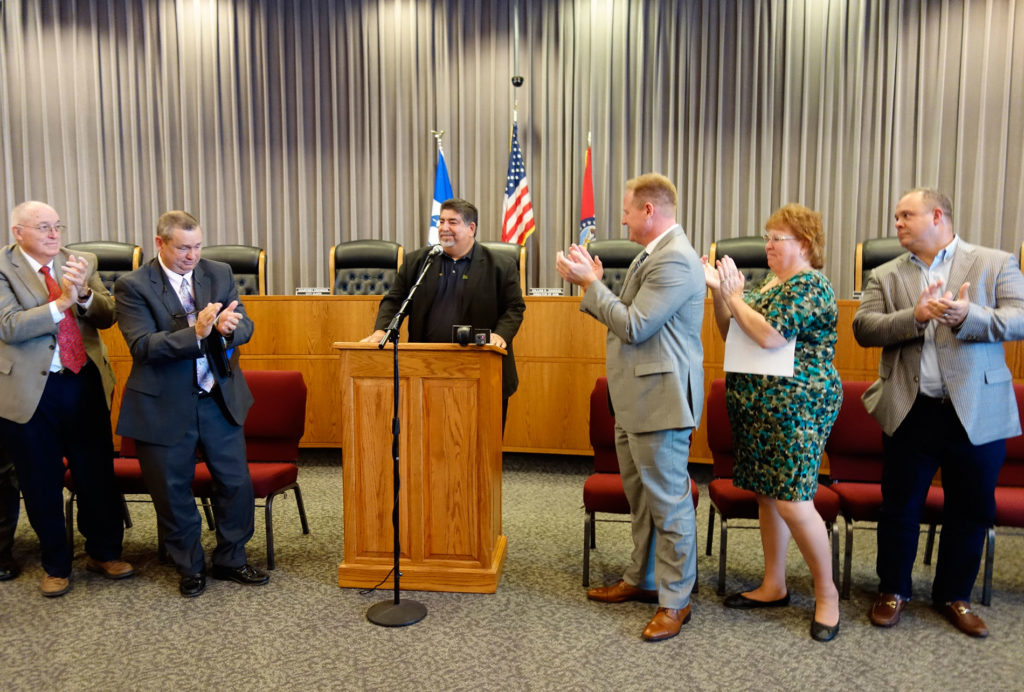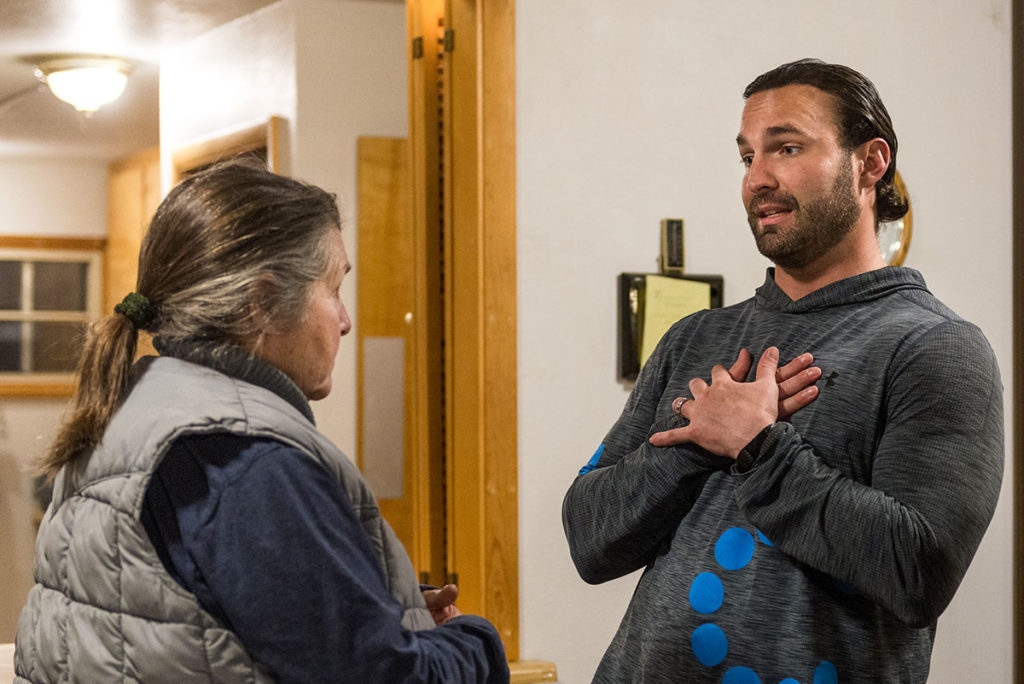Billing fraud allegations connect cast of characters
Many knew each other and worked in tandem
It was CBS News that turned South Florida businessmen Jorge Perez and Aaron Durall into poster boys for alleged billing fraud scams.
In broadcasts that began airing in March 2018, the network spoke of how the two men took over financially struggling hospitals, ramped up billing for urine tests conducted by outside labs and raked in tens of millions of dollars by charging insurance companies far more than they could have charged otherwise.
But Perez and Durall were by no means the only ones involved.
Lawsuits, news reports and criminal investigations reveal that at least a dozen other entrepreneurs allegedly participated in similar laboratory billing programs since 2010.
Many of these people knew each other, learned from each other, and often worked in tandem.
Their initial approach to struggling hospitals invariably involved preaching salvation. And for a few short months, they delivered. Millions of dollars miraculously flowed through near-bankrupt institutions. But it wasn’t long before insurance companies discovered what was going on and halted the payment of grossly inflated claims.
Many of the hospitals have since shut down, causing hundreds of healthcare employees to lose their jobs and local residents to fret about where they would go in the next emergency.
So far, only one participant has been punished.
Tariq Mahmood, a Pakistani physician who owned a chain of Texas hospitals, was sentenced to 11 years in prison in September 2016 for defrauding Medicare and Medicaid.
Others are facing legal proceedings.
Insurance companies have filed at least four lawsuits against Perez, his associates and their companies, accusing them of fraud, and two of those lawsuits have ended in confidential settlements.
There is even a national criminal investigation into billing practices at some of the hospitals previously managed by Perez, according to recent court documents filed by federal bankruptcy trustee in North Carolina. At this point, no charges have been filed.
In the meantime, rural hospitals remain vulnerable.
“What we’ve seen is that the financial situation of our rural hospitals has only gotten worse,” said Terry Hill, senior advisor to the National Rural Health Resource Center in Duluth, Minnesota. “When they get into a downward financial spiral, it’s very difficult for them to get out. That’s when someone from outside comes along and makes an offer — that out of desperation — they may end up taking.”
Tariq Mahmood
Born in Pakistan, Tariq Mahmood obtained his Texas medical license in 1978 and began buying rural hospitals in the state 20 years later.
By 2010, he controlled six.
The first glimmer of his poor judgment radiated in 2006 when the Dallas Morning News reported his business partner, David de la Garza, had a criminal record.
A Houston businessman, De la Garza was convicted of organizing an insurance fraud scheme in 1995 and for illegal cash transactions connected to a drug deal three years later. The Morning News also reported that he spent time in a Colombian jail after getting nabbed with 2 kilos of cocaine in the 1980s.
Over the ensuing years, regulators repeatedly cited Mahmood’s hospitals for shoddy care, questionable management practices and failure to maintain facilities. In 2013, they shut down Renaissance Hospital in Terrell, Texas for unsanitary conditions that led to at least two deaths.
A few months later, federal investigators arrested Mahmood for submitting false claims to Medicare and Medicaid. The indictment says he “added, changed, deleted and incorrectly sequenced diagnostic codes in a manner inconsistent with the actual diagnoses and conditions of the patients.”
Mahmood insisted he was innocent and took the case to trial. But a jury found him guilty on all 15 charges.
Four of his six hospitals have since shut down.
David Byrns
Shortly after his arrest in 2013, Mahmood sold one of his Texas hospitals — Lake Whitney Medical Center — to a company co-managed by Florida businessman David Byrns.
There was no indication the two men knew each other at the time, but by 2016 they were in business together.
A lawsuit filed by insurance companies alleges that Mahmood’s company, Lucenta Labs, processed urine tests for Byrns and Perez in connection with the billing fraud scheme at Putnam Memorial Hospital.Between November 2016 and May 2017, more than $92 million from urine testing flooded through Putnam Memorial and at least $450,000 of that money flowed back out to Lucenta Labs, according to court documents.
“Lucenta labs generated patients’ specimens through its sales personnel, tested the specimens, reported results to its clients, and provided information about the tests to its co-conspirators so that they could be billed to the (insurance company) under the contract as if performed at and by Putnam,” the lawsuit says.

The lawsuit, which remains pending, goes on to accuse Byrns of fraud.
Byrns has denied the allegations.
If the board of directors at Putnam had looked into him more carefully before turning over the keys to their hospital, they might have learned that Byrns had a criminal record.He pleaded guilty to soliciting prostitution in South Florida in 1998. And in 2013, he was arrested for forging a check at South Cameron Memorial, a struggling hospital in Louisiana that he had been tapped to manage.
Documents provided by the Calcasieu Parish Sheriff’s Office reveal that the hospital’s bookkeeper made out a check to Byrns’ company for $130,000 in August 2013. But she later voided the check after realizing the amount was incorrect. She then placed it in her desk drawer and wrote another check for $110,000.
A few days later, the hospital’s auditor called to say both checks had been cashed. The bookkeeper opened her desk drawer and discovered the voided check was missing.
Byrns was charged with felony theft and forgery. But he repaid the money, and the charges were dropped in 2017.
Reached at his home in Lighthouse Point, Florida, Byrns immediately hung up. He did not return a message left on his cell phone.
Seth Guterman
A Chicago physician and businessman, Seth Guterman developed a software program to manage hospital billing and used it to maximize revenues at rural hospitals.
In May 2016, he took over Newman Memorial Hospital in Shattuck, Oklahoma.
The hospital was about to shut down at the time, but Guterman convinced the board that he could save it by launching a urine and blood testing program.
Within months, Guterman and his associates increased the volume of lab testing from an average of six tests per month to more than 800. Annual billings climbed to more than $21 million.
“Defendants reaped millions of dollars in ill-gotten gains by repeating this process thousands of times at Newman and other Aetna-affiliated facilities throughout the country,” a Texas lawsuit says.
Guterman said in an email that he couldn’t comment in detail at this time, but he “unequivocally” denied the allegations against him and his company, adding that the lab program he set up at Newman Memorial helped the hospital.
“Health insurance companies were not only aware of, but were given specific details on, the reference lab program at Newman Memorial Hospital that provided medically necessary laboratory testing for patients,” he said.
The case remains pending.
Other court documents filed by a hospital board and a bankruptcy trustee in Florida allege that Guterman’s company — People’s Choice Hospital — participated in at least one other alleged laboratory billing scheme. But Guterman remained behind the scenes — letting Perez take charge at Campbellton-Graceville Hospital in Florida.
People’s Choice Hospital ended up getting accused of taking $1.2 million from Campbellton-Graceville without board approval, and a court injunction in June 2016 took away Guterman’s signing authority and access to the hospital’s bank account.
“If People’s Choice Hospital is allowed to continue operating Campbellton-Graceville Hospital’s bank accounts … public dollars are at further risk for theft and damage,” a lawsuit filed by the hospital states.
Guterman’s company responded by saying that the money was meant to repay charges associated with lab testing, and it blamed Perez for any questionable billing practices.
Jorge Perez
In an attempt to distance itself from accusations made by Campbellton-Graceville’s board of directors, Guterman’s company said Perez was never an employee of People’s Choice Hospital. But Perez had worked with Guterman’s company on several projects in the past.
Not only did Perez have an IT background and was able to implement Guternam’s software, but his family had been in the hospital billing business for years.
Like many entrepreneurs, Perez encountered financial problems during his career. He filed for bankruptcy protection in 2006, and companies he co-managed with family members got sued after failing to repay a $100,000 loan in 2014.
But once Perez got involved in billing schemes, money was no longer an issue.

Perez, who sold himself as the savior of rural hospitals, proved he had a knack for convincing executives at troubled institutions to let him take over.
He maintained there was nothing illegal about his lab billing strategy. He pointed to a book – “The Profit Machine in the Hospital Basement” – to prove that ramping up lab testing was a mainstream idea, and he created the National Alliance of Rural Hospitals in 2016 to convince hospital executives that billing programs were their last, best hope for survival.
Perez tapped Mike Murtha, a former Florida Congressional staffer, as the organization’s president, and several of Perez’s associates, including Mark Blake and Christian Fletcher, held seats on the board.
Lawsuits filed by insurers and documents from a Florida bankruptcy case show that both Blake and Fletcher ran labs that performed urine testing for hospitals that Perez directed. So did Robert F. Porter Jr., who co-managed a company with Perez — Hospital Laboratory Partners — that allegedly received $62.5 million for its participation in the Putnam Memorial billing program.
Blake, Fletcher and Porter have all denied the allegations in court documents.
Aaron Durall
Of all the people who partnered with Perez on hospital projects, personal injury attorney Aaron Durall was the most prolific.
Lawsuits and bankruptcy court documents show that Durall and his companies participated in at least two billing programs with Perez, and directed at least two of his own.
In August 2016, Durall purchased Chestatee Regional Hospital in North Georgia and promptly increased urine testing from an average of 30 tests per month to about 4,800.
According to a suit filed by Blue Cross and Blue Shield of Georgia, Durall and his associates were able to charge as much as $1,400 for tests that normally would have commanded no more than $300, and they ended up collecting about $111 million in reimbursements.
It was more of the same when Durall took charge at Sonoma West Hospital in Northern California the following year.
In a lawsuit filed in California, insurers described the extraordinary lengths that Durall and his associates went to carry out the plan.
“Approximately 90 percent of lab specimens originated in Orange County, California — nearly 500 miles from Sonoma West,” the lawsuit states. “But that was just the beginning of their journey.”
The samples first travelled 2,300 miles east to Reliance Labs, Durall’s company in Sunrise, Florida. They were then divided into two portions, with one remaining at Reliance Labs and the other boarding a plane to fly 2,600 miles back to Northern California where a basic screening test was supposedly performed at Sonoma West.
“These nearly 5,000 miles were a trip not just around the country, but an end-run on Anthem’s professional fee schedule,” the lawsuit states.
Atlanta attorney Brian McEvoy, who represents Durall, said his clients has denied all the allegations and the suits were settled in April. But McEvoy said the details remain confidential.
Neisha Carter Zaffuto
A June 2015 article posted on the behavioral.net website paints Neisha Zaffuto’s company, Medivance Billing, as one of the most successful companies in the behavioral health and addiction treatment field.
But lawsuits filed against Zaffuto in Georgia and California place her at the center of alleged billing fraud schemes at both Chestatee Regional Hospital and Sonoma West Medical Center.
Zaffuto allegedly submitted fraudulent claims from those hospitals to insurance companies, and helped hide the fact that urine testing was not being conducted there. The lawsuits also say that she assisted in inflating charges for urine tests from $32 to as much as $3,500.
When insurers first suspected fraud at Sonoma West, they contacted the hospital’s billing department, court documents say. Employees there, who knew nothing about the alleged scheme, confirmed that none of the randomly selected urine tests had been ordered for Sonoma West patients.
But Zaffuto quickly got back in touch, telling insurers she was responsible for medical records at the hospital and had been able to locate all the patients they had questions about.
When the insurers asked for proof, Zaffuto wasn’t able to deliver, court documents state.
“To this day, Sonoma West has been unable to provide Anthem a single requisition form indicating that the testing had actually been ordered by a physician, let alone that Sonoma West had been the entity from whom the testing had been ordered,” the lawsuit states.
Zaffuto has denied the allegations and the lawsuits filed against her have been settled.
Beau Gertz
Beau Gertz revealed a lot about himself in a failed 2018 bid to take control of Surprise Valley Community Hospital, a bankrupt 26-bed facility in Northern California.
During a town hall meeting recorded by a reporter at Kaiser Health News, Gertz said he worked in sales and marketing for Perez for 18 months before setting out on his own. But he insisted he was nothing like the South Florida businessman.
Sure, he intended to use Surprise Valley Hospital to bill insurers for lab tests conducted all over the country, but Gertz said he was going to do it the right way.
“The hospital can’t simply take a specimen, have someone else run it, and then submit it through with nobody in that hospital ever seeing the patient,” Gertz said at the time.

Gertz promised to set up a tele-medicine operation at Surprise Valley so that patients — regardless of their location — could get in touch with doctors associated with the hospital and those doctors would then order appropriate tests and procedures.
Gertz wasn’t able to complete the deal. He was criticized for not providing his company’s financial reports. And when the scrutiny became too intense, he just vanished.
Meanwhile, a lawsuit filed by insurance companies in Missouri alleges he participated in the billing fraud scheme at Putnam Memorial Hospital with his business partner, Mark Blake.
The suit says the two men used their companies to collect more than $26 million in reimbursements.
Gertz and Blake have denied the allegations.
Christian Fletcher
Christian Fletcher’s company — LifeBrite Laboratories — also processed urine tests for Putnam Memorial, collecting more than $11.5 million for its services, according to court records filed by insurance companies.
But unlike some of the other lab owners that did business with Perez, Fletcher also conducted his own laboratory billing operation after buying a hospital in Stokes County, North Carolina in December 2016.
A counterclaim filed by Blue Cross and Blue Shield of North Carolina alleges that LifeBrite saw its lab billings jump more than 22,000 percent from an average of $37,400 per month to approximately $8.5 million per month after Fletcher took over.
“The testing billed by LifeBrite was not for patients being treated at LifeBrite, or by LifeBrite-credentialed healthcare providers, or for patients who resided in the relatively small territory serviced by LifeBrite,” Blue Cross Blue Shield said in court documents.
To drive home its point, Blue Cross Blue Shield included a map with its lawsuit showing that only about 8,000 of the 525,000 lab tests ordered by LifeBrite were performed for patients living in North Carolina. That compares to nearly 13,000 in Texas, nearly 15,000 in California and nearly 30,000 in both Illinois and Pennsylvania.
Fletcher denied accusations of fraud in court documents and in statements to the press.
In an email to GateHouse Media, he said he severed ties with Perez after the allegations of billing fraud surfaced at Putnam Memorial Hospital. He added that he is confident his hospital’s billing practices “are lawful, appropriate and consistent with LifeBrite’s contracts with insurers.”
“We believe there is a misunderstanding about who we are and how we do business,” Fletcher said. “In the case of (LifeBrite Hospital), we strongly believe any outstanding issues will be resolved in due course.”
LifeBrite remains open for business. But Blue Cross Blue Shield halted all reimbursements in August of last year.
At least 11 of the other hospitals that served as hubs for billing programs have shut down.
“We always hate to see something like this happen,” said Hill, the senior advisor to the National Rural Health Resource Center. “We hate to see the abuse of a system that’s designed to help and support rural hospitals.”